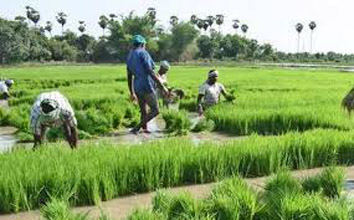NE NEWS SERVICE
NEW DELHI, SEPT 22
The Pesticides Management Bill (PMB), which is pending in Parliament for passage, should be sent to a standing committee or select panel for further consultations with stakeholders as the proposed law has several loopholes, according to farm experts.
Earlier this year, the Union Cabinet approved the Pesticides Management Bill, 2020, to regulate the business of pesticides and compensate farmers in case of losses from the usage of spurious agro-chemicals.
The bill, which was introduced in the Rajya Sabha in March this year, seeks to protect the interest of farmers and ensure they get safe and effective pesticides.
Stating that the bill in the present form was not based on scientific facts, RB Singh, former president of the National Academy of Agricultural Sciences (NAAS), said the registration process of pesticides should be made time-bound and online to make it transparent.
He was speaking at a webinar organised by the All India Kisan Coordination Committee (AIKCC).
He also advocated stringent punishment for spurious pesticide makers.
“The PMB in the present form is not based on scientific facts and does not adequately address the concerns of the farmers,” Singh said, and suggested that it should be sent to a parliamentary standing committee or select committee for wider consultations with the stakeholders.
He said the government should include the recommendations of NAAS and the Trust for Advancement of Agricultural Sciences (TAAS), which have been prepared after comprehensive consultations with all stakeholders.
This will, he said, not only enhance the credibility of the bill, but would also greatly augment the agro-ecological and socio-economic impact of pesticides as plant health chemicals.
Singh said pesticides play an important role in increasing agricultural productivity and preventing crop losses.
“However, despite the very low intensity of pesticide use in the country, less than 0.5 kg/hectare, against over 13 kg/hectare in China, due to their indiscriminate use, negative impact on the health of humans, animals, biodiversity, and environment are not uncommon,” he added.
Singh said NAAS has recommended that the definition of the terms used in the bill should be unambiguous and scientific, the import and registration of technical grade pesticides should be streamlined and it must have adequate provisions for data protection.
It has also suggested “decriminalization of the system, but fixing differentiated accountability along the value chain”, he said.
Answering a question posed by navjeevanexpress.com, “On the one hand, the govt is batting for organic farming but on the other, it is promoting the use of pesticides to get more yield. Why the Centre is playing this double-game?” Dr RB Singh said, “Though organic farming itself is very beautiful, one has to think about the possibility of fulfilling the needs of 1.3 billion Indians through organic farming. He further emphasized that bio-pesticides can fill these gaps, however, there is a lack of focus on the bio-pesticides. He requested proper research funds, approval for a large number of bio-pesticides, and also mentioned that it would be prudent if there is a collaboration between the students and private industries to make a skilled availability of knowledgeable labour towards pesticide usage by their proper testing through public-private partnerships.”
C D Mayee, former chairman of the Agriculture Scientists Recruitment Board (ASRB), also stressed on the timely and online registration process.
AIKCC’s National President Bhupinder Singh Mann said: “The PMB 2020 is an excellent opportunity to replace the old Insecticides Act, but, unfortunately, it has again placed farmers back under the banyan tree.”
The proposed law must provide the right to technology to farmers for quality crop protection by overhauling the regulatory system, he added.
AIKCC was formed as a coordinating platform of various state-level farmers organisations, currently 28 in number.










